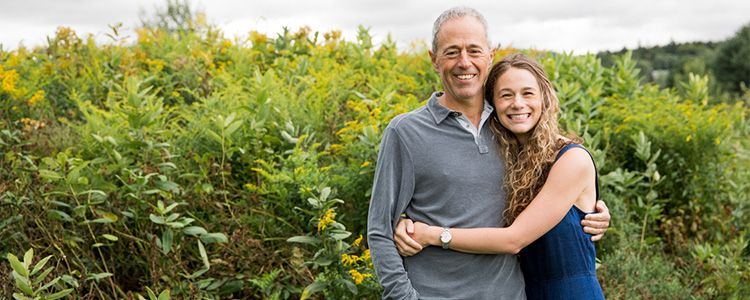I was not ready to lose a parent, let alone to such a horrible disease. I was 30 when my dad was diagnosed with Alzheimer's. My siblings were even younger. The doctors expected he would live for less than five years. He made it three.
My first son was born six months before my dad was diagnosed with Alzheimer’s. It was the beginning of the COVID-19 pandemic, and life was a blur. When my son was born, dad was showing some signs of cognitive decline- he had fallen asleep at the wheel and gotten lost when driving many times after having a keen sense of direction his whole life. He had been told to stop driving a month before and was not happy about it.
Six months later when the diagnosis officially came, he had been able to play with his grandson and found lots of joy in doing so- he would get on the floor and demonstrate crawling. My three year old still talks about doing yoga with papa in the living room. My dad loved playing and grandparenting. And I was getting used to parenting. I was also getting used to being a working mom. As dad declined, achieving that balance- parenting, working, caregiving, and supporting my mom and sister who were even more involved- was always out of reach. It never felt easy or like I was fully present.
I would drive four hours for a one night visit to see dad and spend time with my mom and sister. I spent countless hours researching memory care facilities, day programs, online games, and therapies that dad could do. Some were a success, others not so much. I would take the day off of work and take my first son, and later my second son as well, on a random Tuesday to see his grandparents to spark some joy. Despite the stress at the time, in my dad's passing, my only regret is that I did not make even more time. Time is something you can never get back. Each day with someone with Alzheimer's disease may be different, so make the best of the moments you have.
Learning to be part of a caregiving team, making time to figure out what your loved one needs, what the rest of your family needs, and for yourself, is nearly impossible. There were limited support resources out there for me and my siblings, young(er) adults who were losing a parent just as we were learning to be "real people." We were lucky we had each other to share responsibilities, but not everyone is.
My background is as a public health professional, advisor, and researcher. My personal experience has inspired me to create a resource for other millennial caregivers, to help anyone else learning how to navigate this space. I quickly have learned there is a growing group of us.

